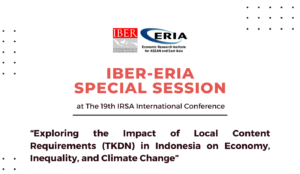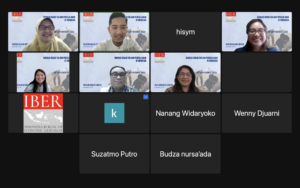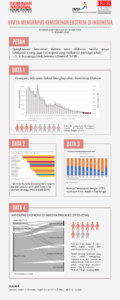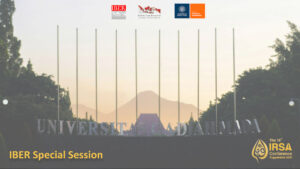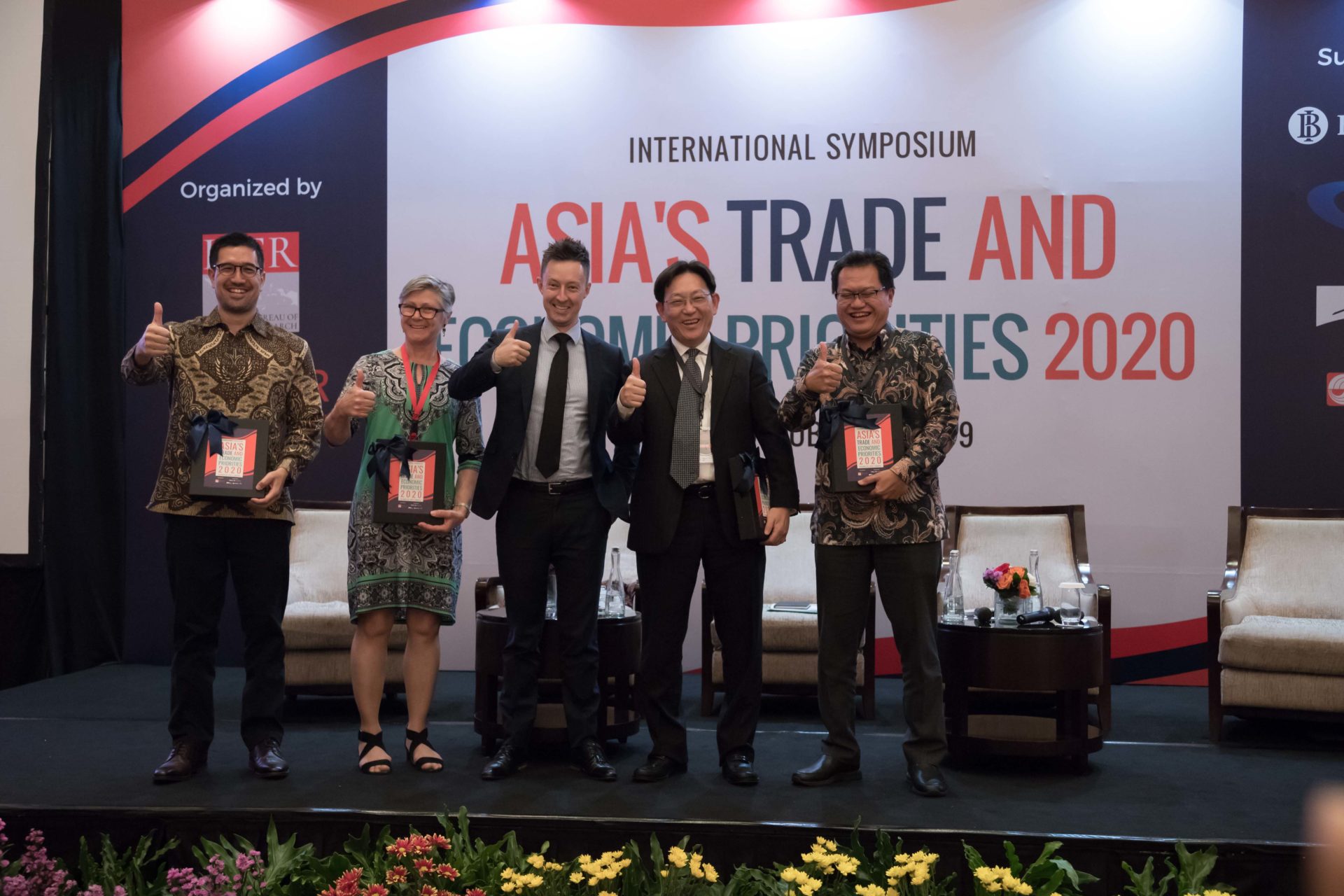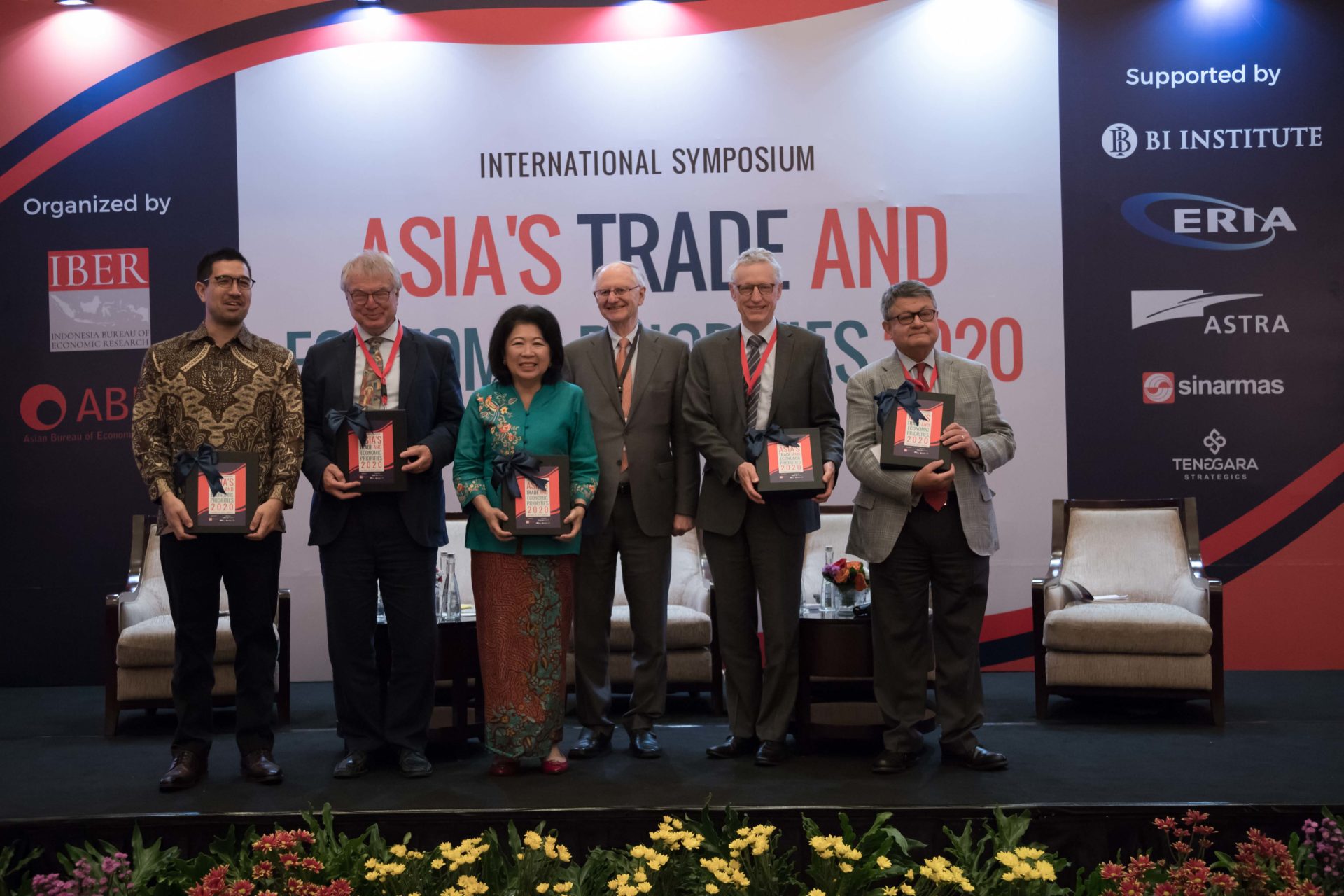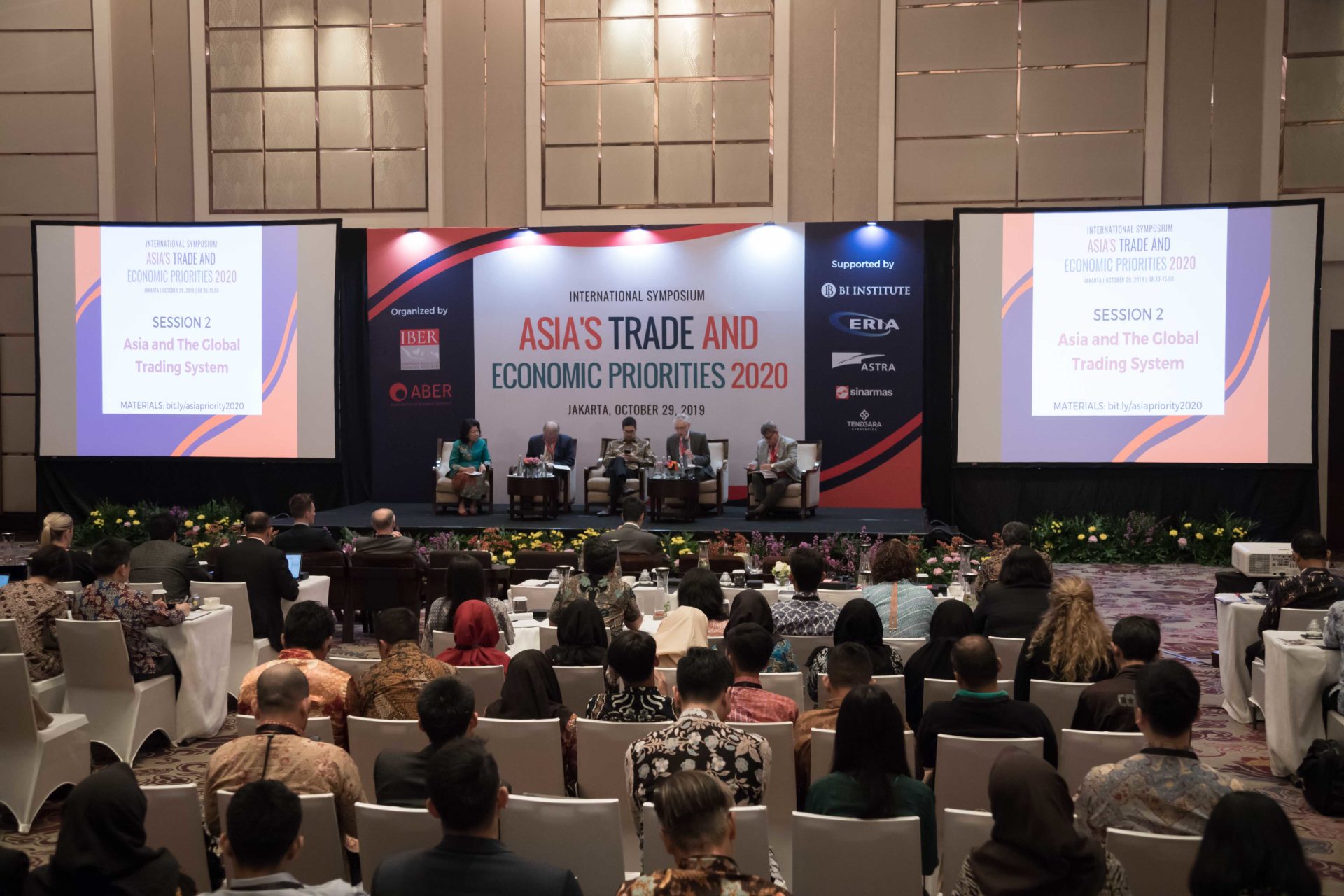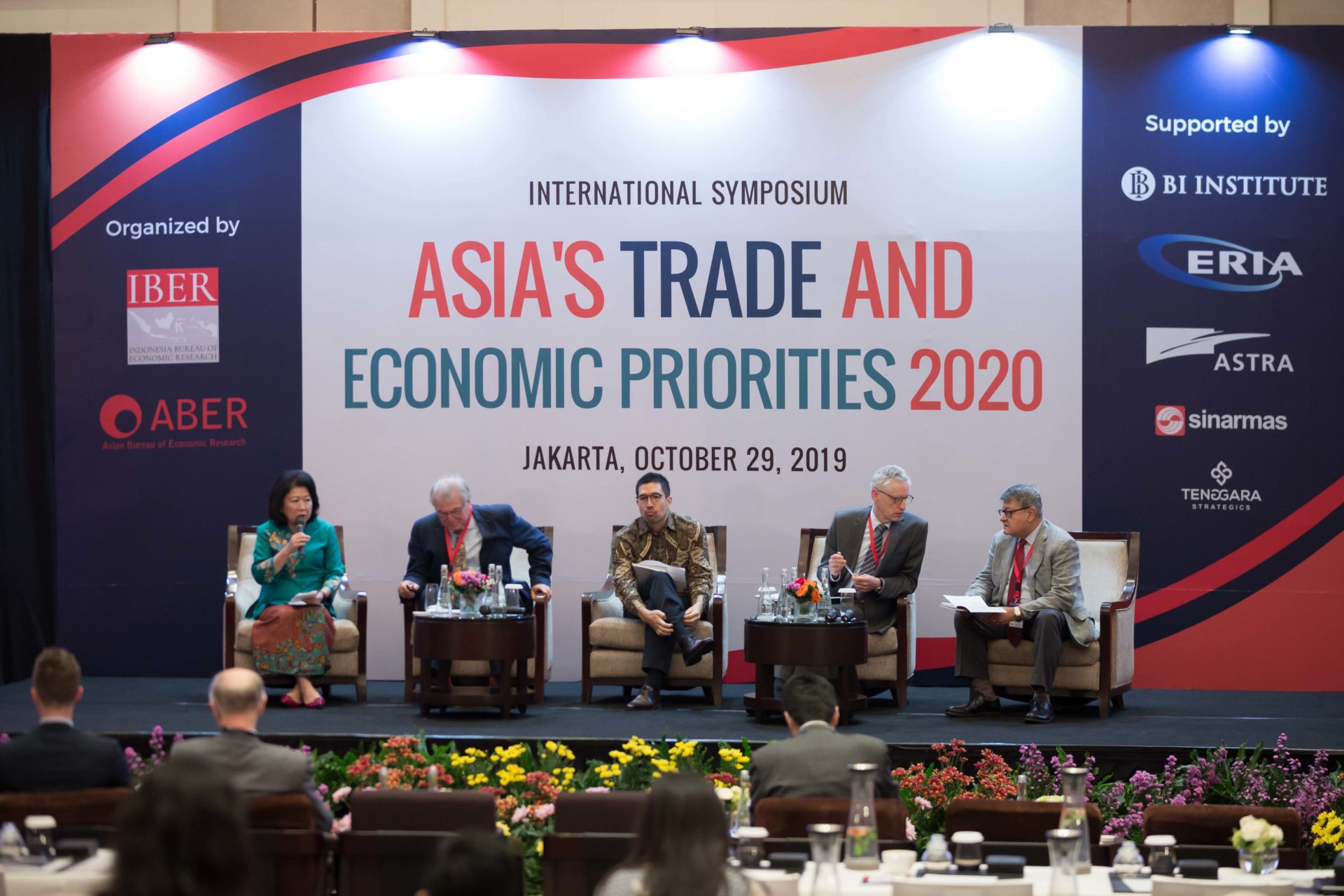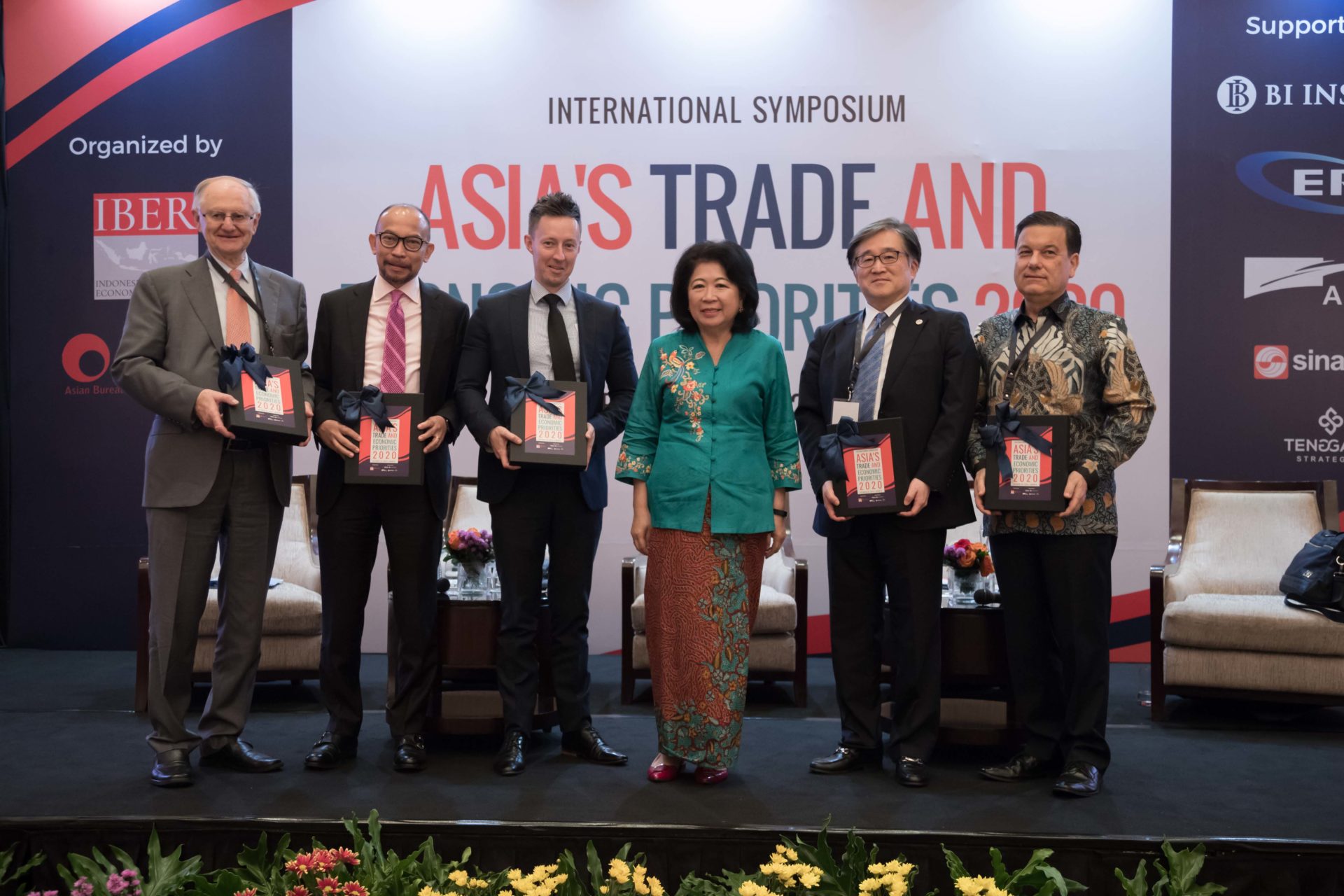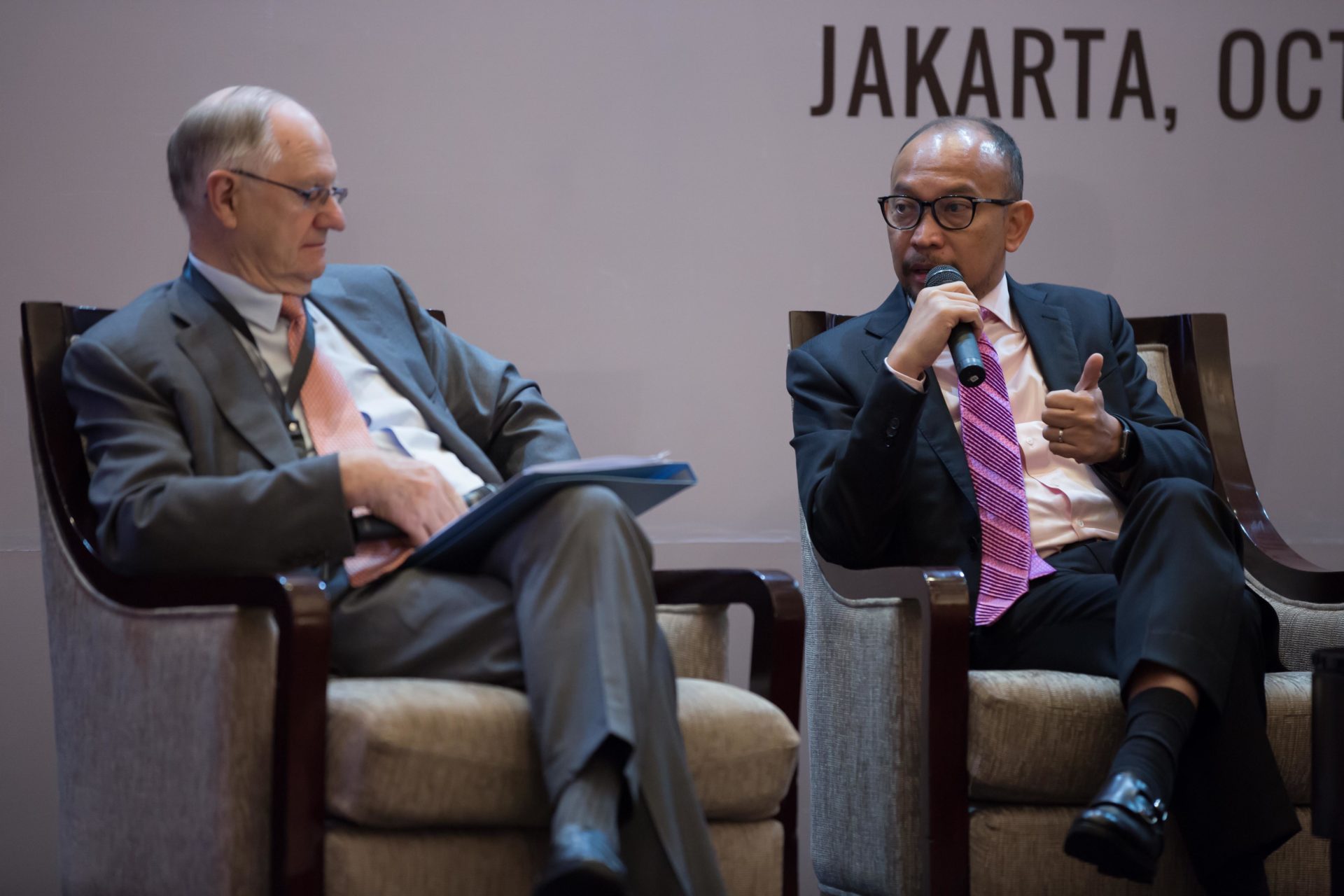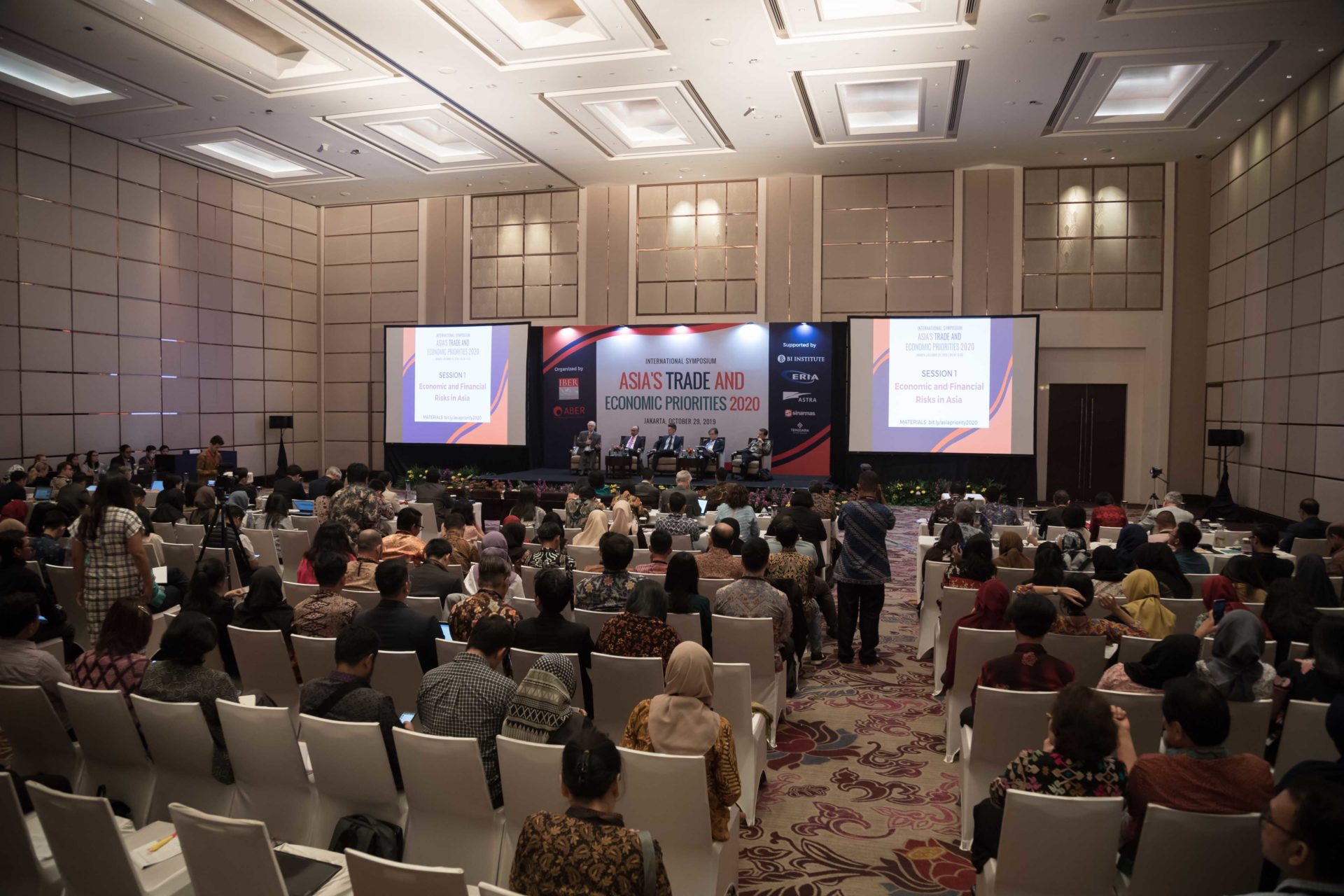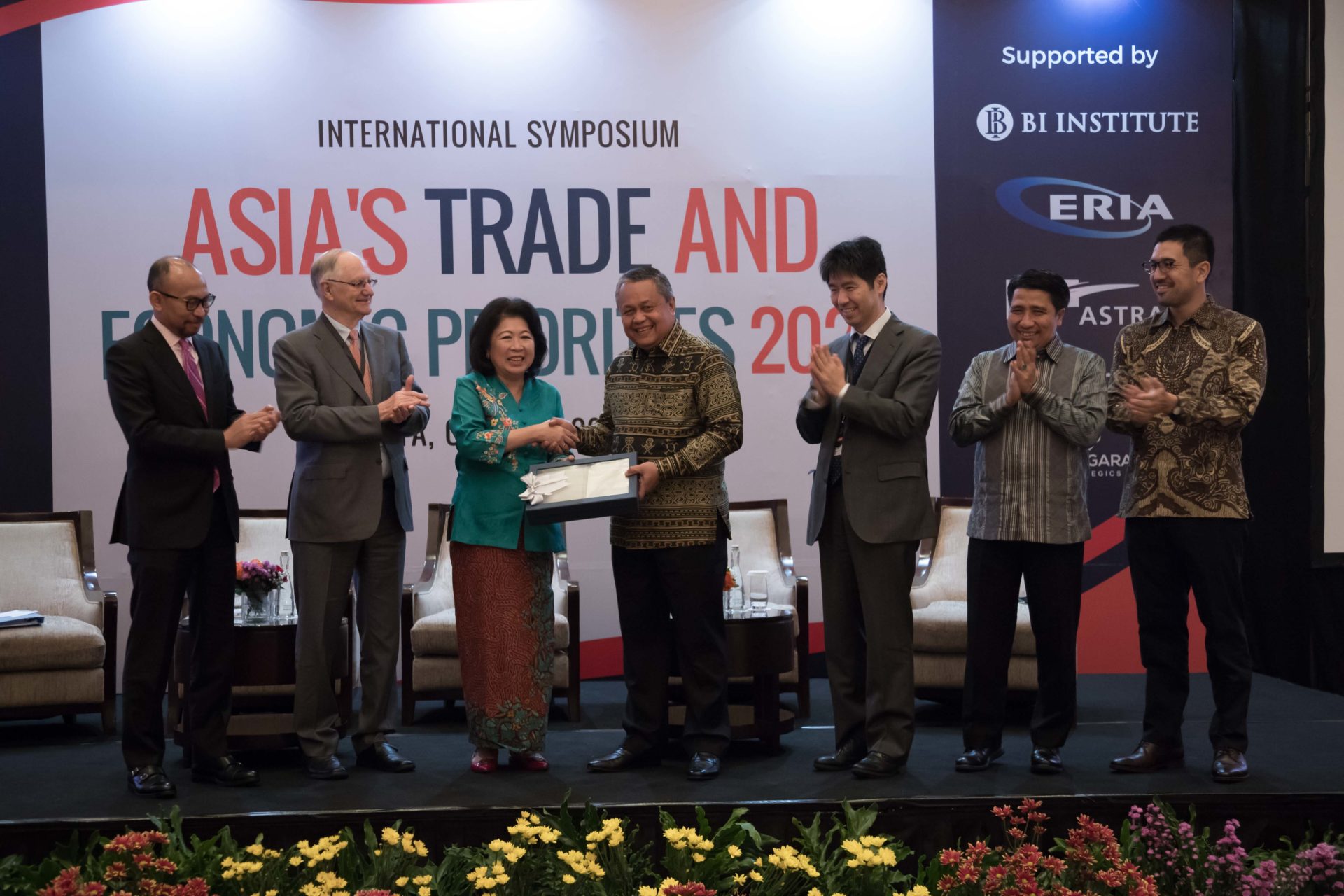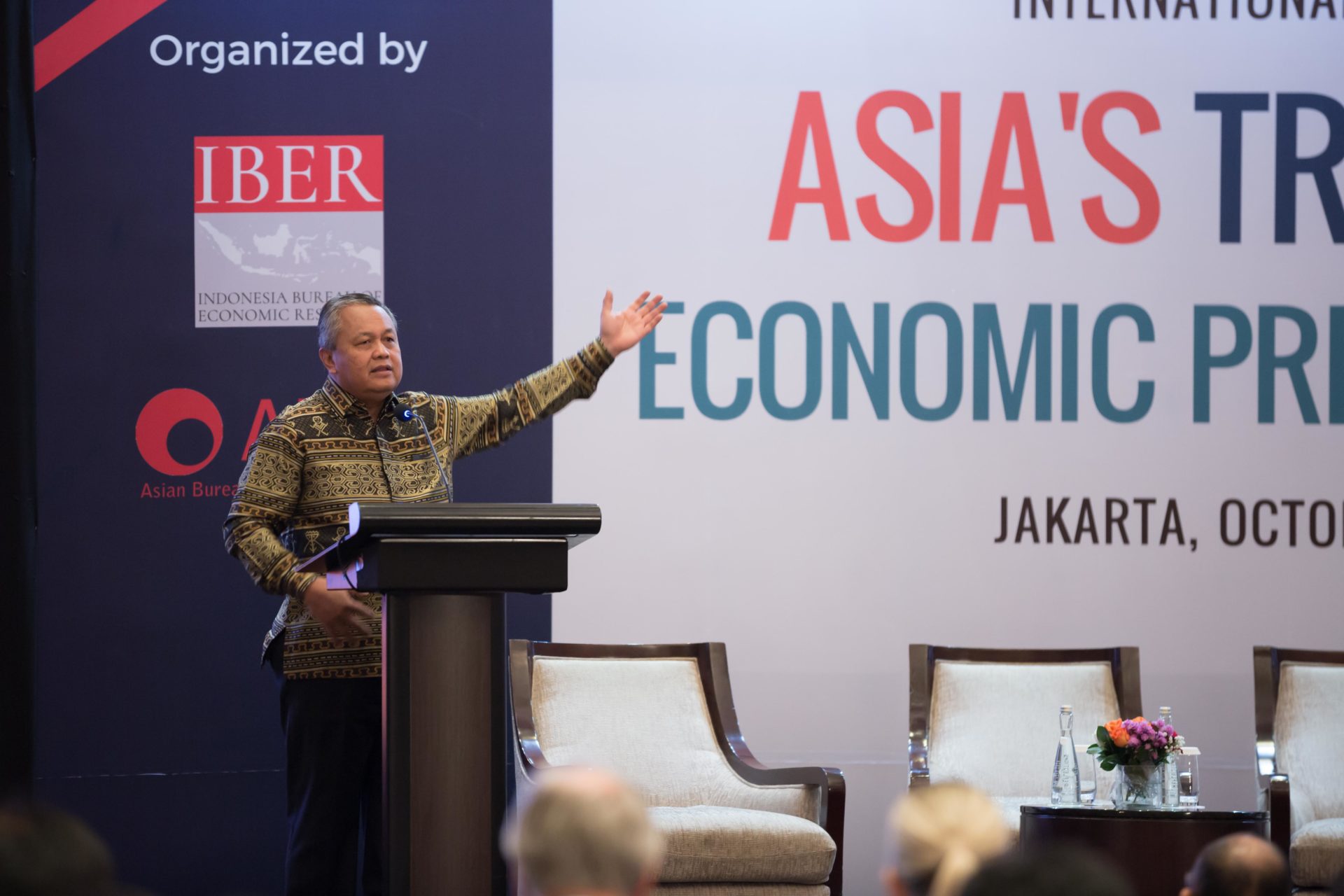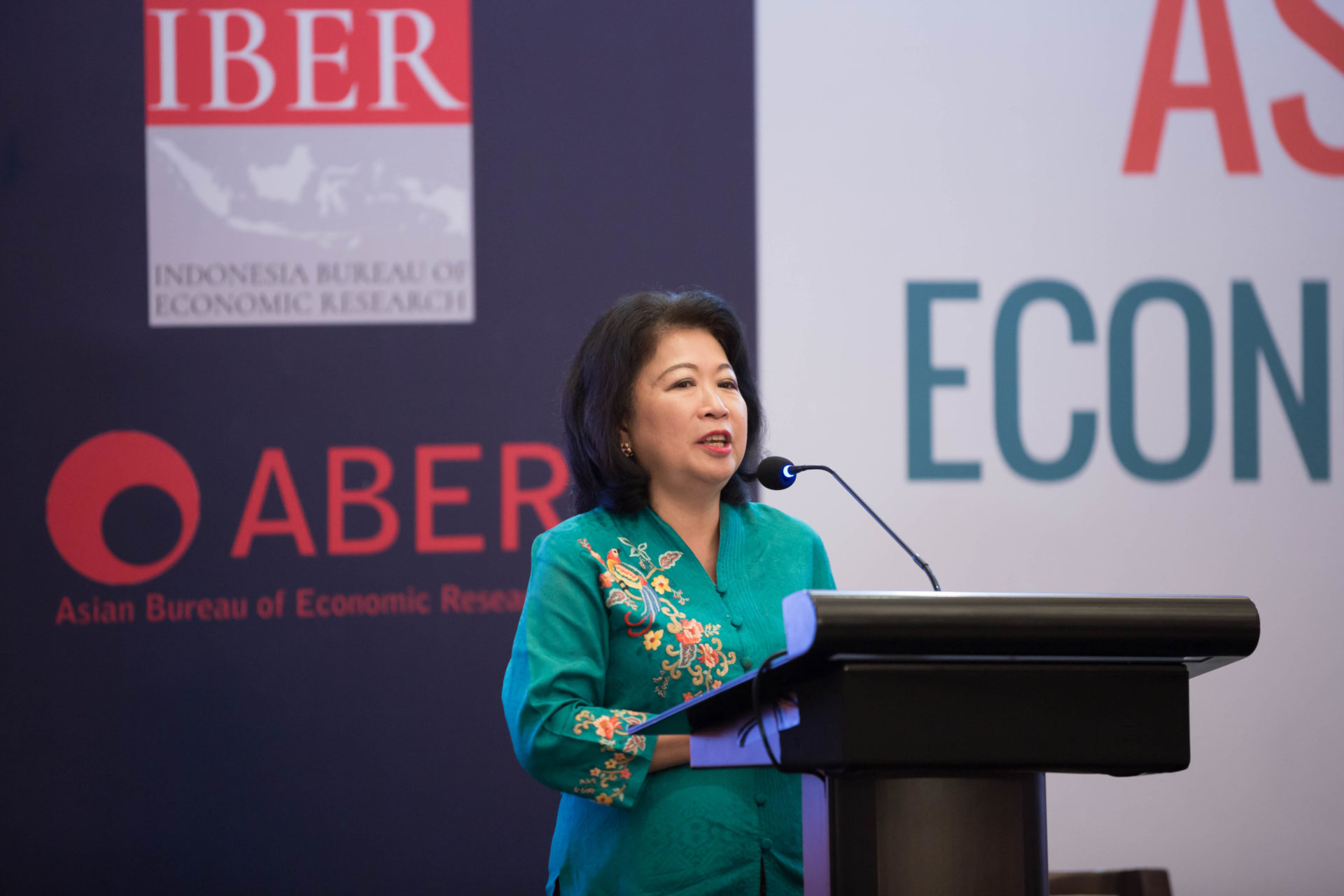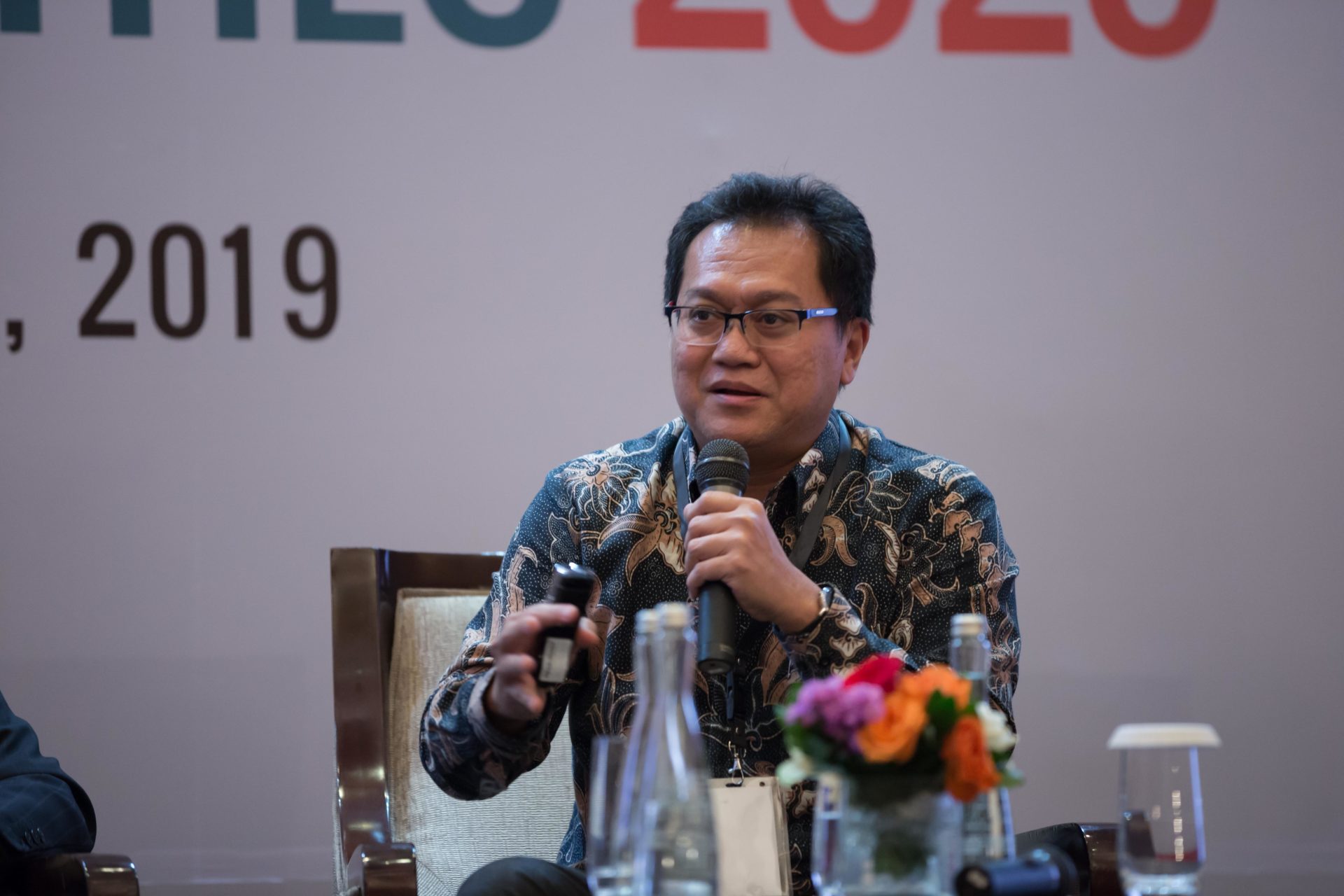-
Experts Uncover Unintended Consequences of Indonesia’s LCRs Policy at IBER-ERIA Session
[Ambon, July 16th] Director of the Center for International Trade and Investment at Universitas Pelita Harapan, Michelle Limenta, cautioned Indonesia about its Local Content Requirements (LCRs) policy during the IBER-ERIA
-
IBER-ERIA Special Session at 19th IRSA Conference Examines Complexities of Local Content Requirements Policy
[Ambon, July 16th] Indonesia Bureau of Economic Research (IBER) and the Economic Research Institute for ASEAN and East Asia (ERIA) collaborated to host a special session on the opportunities and
-
IBER Webinar: Parents Migration and Child Worker in Indonesia
Child labor is one of the ongoing social issues in Indonesia. The high number of child laborers needs to be thoroughly examined to understand why they enter the job market
-
Upaya Menghapus Kemiskinan Ekstrem di Indonesia
Kemiskinan ekstrem di Indonesia sudah mengalami penurunan signifikan beberapa waktu ke belakang. Dibutuhkan kolaborasi dan langkah yang tepat untuk menuju 0% di tahun 2024. Simak infografis di atas untuk melihat
-
Gandeng BPS, TNP2K Genjot Penguatan dan Ketepatan Sasaran Program Penghapusan Kemiskinan Ekstrem
Dalam mencapai target penghapusan kemiskinan ekstrem di Indonesia, keakuratan data sangat penting untuk diperhatikan, kata Nursahrizal dari Badan Pusat Statistik (BPS). Nursahrizal yang menjadi pemateri dalam Forum Akademisi TNP2K dan
IBER (Indonesia Bureau of Economic Research)
Over the past 10 to 15 years the number and quality of research economists able to contribute to high quality economic policy analysis has shrunk. This is partly due to the lack of incentives that there were in the past and the pull towards more lucrative consulting and research projects, which may or may not be related to individual academic research interests. In the case of economists working in the government or private sector, energies are inevitably directed towards fulfilling direct job responsibilities.
It is in this context that there is a need to increase the quality and quantity of economic research undertaken by Indonesian economists on issues of national importance that is of internationally publishable standard (national and international journals in the Scopus Index) and that provides input that is germane to good policymaking
Therefore, we created the Indonesian Bureau of Economic Research (IBER), or Indonesia – Biro Ekonomi dan Riset (IBER) in Indonesian. The purpose of the network is to provide support for economists to conduct quality research which can be published in national and international journals, provide intellectual input through high-level professional engagement, build capacity for younger economists, and most importantly build a platform to contribute to evidence-based public analysis of key issues for Indonesia and to provide objective policy input when necessary.




